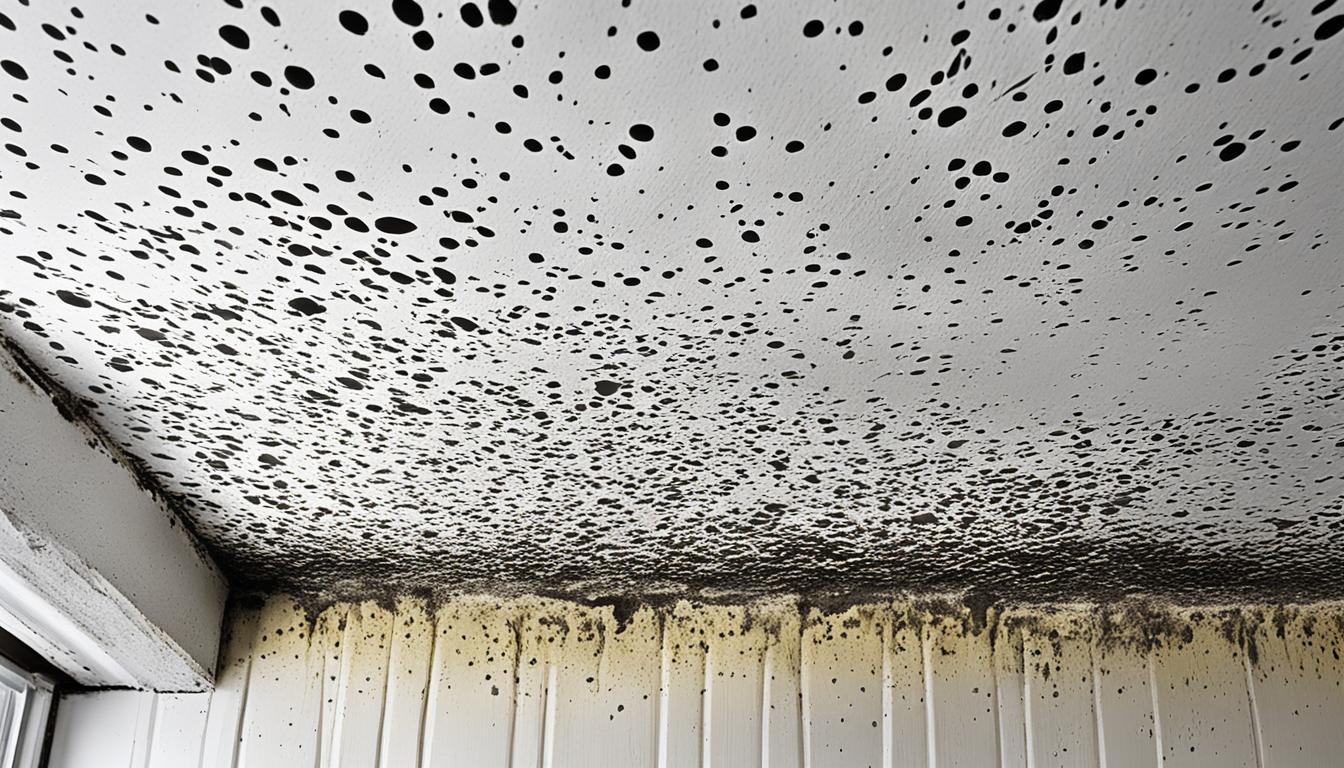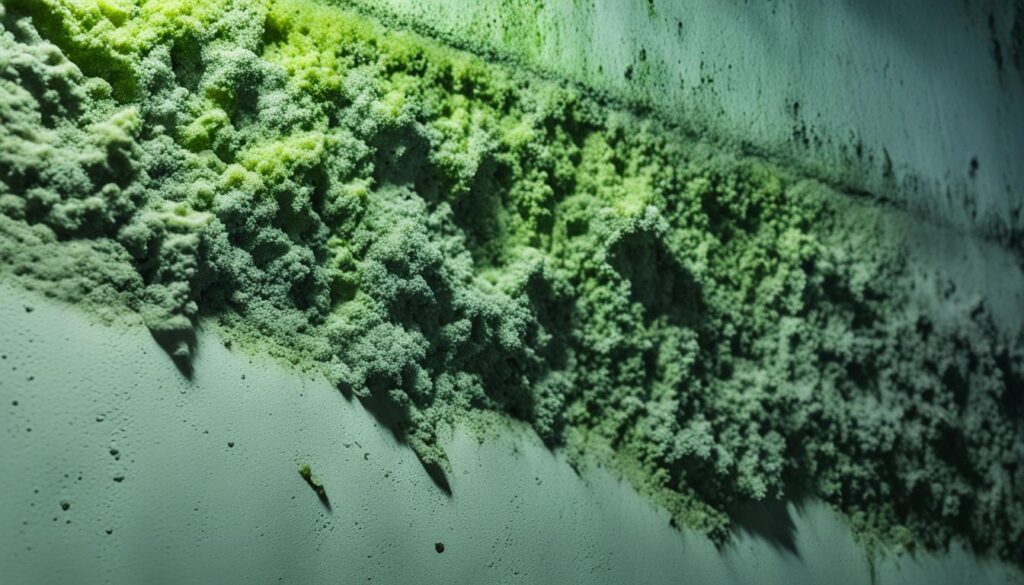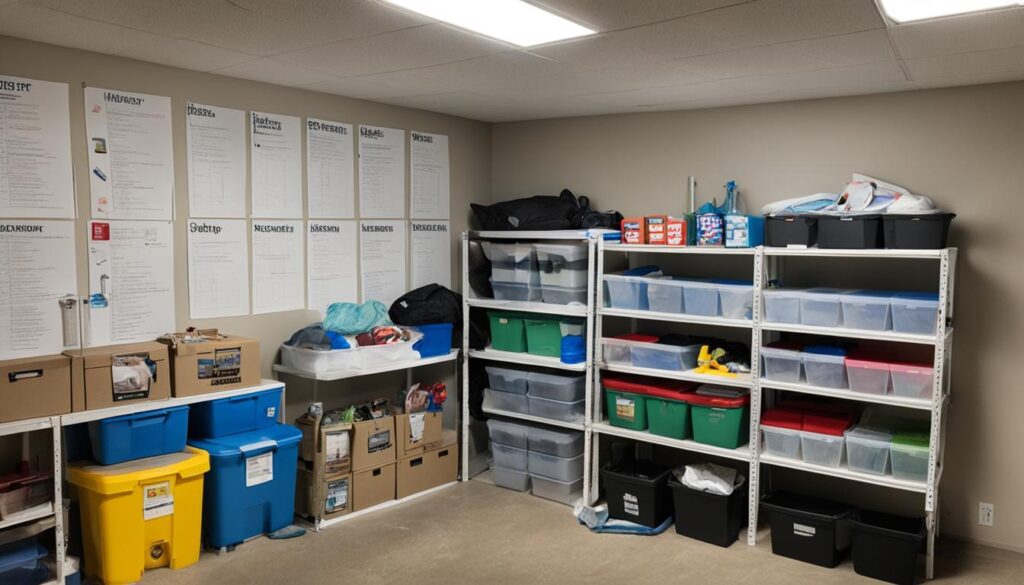
Mold in Your Basement: Should You Be Concerned?
Discovering mold in your basement can be concerning. Not only can it be unsightly and create a musty odor, but it can also pose potential health risks for you and your family. Understanding the signs of mold in your basement and the associated health risks is crucial in determining whether you should be concerned and take action.
When it comes to mold in your basement, it’s essential to be aware of the warning signs. These signs may include a damp and musty smell, visible mold growth on walls, ceilings, or floors, peeling paint or wallpaper, and the presence of water stains. If you notice any of these signs, it’s time to investigate further and address the potential mold issue.
Aside from the unpleasant appearance and odor, basement mold can have adverse effects on your health. Exposure to mold spores can trigger allergic reactions, such as sneezing, coughing, and watery eyes, in sensitive individuals. Prolonged exposure to mold can lead to respiratory problems, exacerbate asthma symptoms, and even cause infections in individuals with weakened immune systems.
Key Takeaways:
- Signs of mold in your basement include a damp and musty smell, visible mold growth, peeling paint or wallpaper, and water stains.
- Exposure to basement mold can cause allergic reactions and respiratory problems.
- If you suspect mold in your basement, it’s important to take prompt action to prevent further mold growth and protect your health.
- Contacting a reputable mold remediation service can help you assess the situation and take appropriate measures to mitigate the issue.
- Regular maintenance and preventive measures are crucial in preventing mold growth in your basement.
Understanding Basement Mold
When it comes to the presence of mold in your basement, understanding the problem is the first step towards effective remediation. Mold growth not only poses risks to your health but can also compromise the structural integrity of your home. In this section, we will dive deeper into the topic of basement mold, covering crucial aspects such as mold inspection, methods for basement mold removal, and steps for mitigating mold growth.
Ensuring a safe and mold-free basement environment requires a thorough mold inspection. During a mold inspection, professionals evaluate the extent of mold growth, identify the source of moisture, and recommend appropriate remedial actions. This process facilitates targeted and effective mold removal strategies.
Basement mold removal methods vary depending on the severity of the infestation and the type of mold present. Some common techniques include physical removal, such as scrubbing or scraping, as well as the use of mold-specific biocides or encapsulants. Professional mold remediation companies employ industry-approved techniques to ensure complete eradication of mold from your basement.
Once mold has been removed, it is important to take steps to mitigate any future mold growth in your basement. This involves addressing the underlying causes of mold, such as excess humidity, water leaks, or poor ventilation. Implementing preventive measures like basement waterproofing, improving ventilation, and controlling humidity levels can significantly reduce the likelihood of mold recurrence.
“To effectively combat basement mold, it’s crucial to address the root causes and employ professional remediation methods. By doing so, you can create a safer and healthier living environment for you and your family.” – Jane Thompson, Certified Mold Remediation Specialist
Steps for Mitigating Mold Growth in Your Basement:
- Identify and fix any water leaks or sources of moisture in your basement.
- Improve ventilation by installing fans or vents to ensure proper air circulation.
- Control humidity levels with the help of dehumidifiers or moisture absorbers.
- Regularly inspect and maintain your basement to catch any signs of mold growth early on.
- Consider professional basement waterproofing to prevent water infiltration and subsequent mold growth.

Preventing and Managing Mold Growth in Your Basement
When it comes to maintaining a safe and healthy living environment, preventing mold growth in your basement is crucial. Mold not only poses serious health risks but can also cause damage to the structural integrity of your home. By implementing effective strategies for basement waterproofing and practicing regular maintenance, you can ensure a mold-free basement and peace of mind for you and your family.
One of the most important steps in preventing mold in your basement is basement waterproofing. This process involves creating a watertight seal that prevents moisture from entering the basement. Moisture is one of the key factors that contribute to mold growth, so addressing any potential sources of water intrusion is essential.
There are several basement waterproofing methods available, including interior and exterior solutions. Interior waterproofing involves applying sealants or coatings to the interior walls and floors to prevent water seepage. Exterior waterproofing, on the other hand, focuses on addressing the root causes of water intrusion, such as grading, gutters, and downspouts.
Regular maintenance also plays a vital role in managing potential mold growth in your basement. Keep an eye out for any signs of water damage, such as leaks or dampness, and address them promptly to prevent mold from taking hold. Regularly inspect and clean your gutters and downspouts to ensure proper drainage, and consider investing in a dehumidifier to control moisture levels in the basement.
Creating proper ventilation is another key aspect of preventing mold growth. Ensure that your basement has sufficient airflow by installing vents or fans, which can help to reduce moisture and keep the space dry. Additionally, keeping the basement well-lit can deter mold growth, as mold thrives in dark and damp environments.
Key Strategies for Preventing Mold in Your Basement:
- Invest in basement waterproofing to prevent water intrusion.
- Maintain and clean gutters and downspouts regularly.
- Address any signs of water damage promptly.
- Monitor and control moisture levels with a dehumidifier.
- Install ventilation systems or fans to improve airflow.
- Keep the basement well-lit to discourage mold growth.

By taking these proactive measures, you can significantly reduce the risk of mold growth in your basement. However, it’s important to remember that even with the best prevention strategies, mold can still occur. In the next section, we will explore the importance of professional intervention when dealing with basement mold, including mold testing and remediation methods.
Professional Intervention: Mold Testing and Remediation
When dealing with basement mold, seeking professional help is essential to ensure effective mold assessment and removal. Professional mold testing and remediation services offer a range of benefits that can help resolve the issue efficiently and prevent further mold growth.
The Benefits of Professional Mold Testing
Professional mold testing involves the expertise of trained professionals who use specialized equipment to identify and assess the extent of mold growth in your basement. With their knowledge and experience, they can accurately detect hidden mold and determine the appropriate remediation plan.
- Accurate identification of mold species: Professional mold testing can help determine the specific type of mold present in your basement. This information is crucial for implementing effective removal strategies.
- Comprehensive assessment: Professionals conduct a thorough evaluation of your basement, including areas susceptible to mold growth. This assessment helps identify the root cause of mold and prevents future outbreaks.
- Objective and unbiased results: Professional mold testing provides objective and unbiased results, ensuring reliable information for making informed decisions regarding remediation.
The Process of a Mold Assessment
A mold assessment typically involves the following steps:
- Visual inspection: Professionals visually inspect your basement for signs of mold growth, such as discoloration, musty odors, or water damage.
- Air sampling: Samples of the indoor air are collected to detect mold spores. These samples are analyzed in a laboratory to determine the concentration and types of mold present.
- Surface sampling: Swab or tape samples may be taken from suspected mold growth areas to identify the specific mold species.
- Moisture assessment: Moisture levels in your basement are measured to identify potential sources of moisture that contribute to mold growth.
The Importance of Hiring Experts for Basement Mold Removal
Professional mold remediation services are equipped with the knowledge, experience, and tools necessary to effectively remove mold from your basement and prevent its recurrence. Here’s why hiring experts is crucial:
- Safe and thorough removal: Professionals follow industry-standard protocols to safely remove mold, ensuring its complete eradication from your basement.
- Preventing cross-contamination: Experts take precautions to prevent mold spores from spreading to other areas of your home during the removal process.
- Addressing underlying issues: Professionals not only remove existing mold but also address the root causes, such as moisture or ventilation problems, to prevent future mold growth.
By enlisting the help of professionals for mold testing and remediation, you can ensure a mold-free and safe environment in your basement. Their expertise and systematic approach guarantee effective mold assessment and removal, providing you with peace of mind.
Conclusion
In conclusion, addressing mold in your basement is essential for the health of your family and the structural integrity of your home. The presence of mold can not only cause various health risks but also lead to significant damage to your property if left untreated.
To ensure a safe and mold-free basement environment, it is crucial to take immediate action. This includes conducting a thorough mold inspection to identify the extent of the mold problem, followed by professional mold testing to determine the type of mold present and its potential health hazards.
Once the mold inspection and testing are completed, it’s important to hire a professional mold removal service that specializes in basement mold removal. They have the expertise and equipment to safely and effectively remove the mold, preventing its recurrence and safeguarding your home from further damage.
If you suspect mold growth in your basement, do not hesitate to contact a reputable mold remediation service like Fix Mold Miami at 305-465-6653. They offer comprehensive mold assessments, professional mold testing, and basement mold removal services to ensure a mold-free environment for you and your family.




